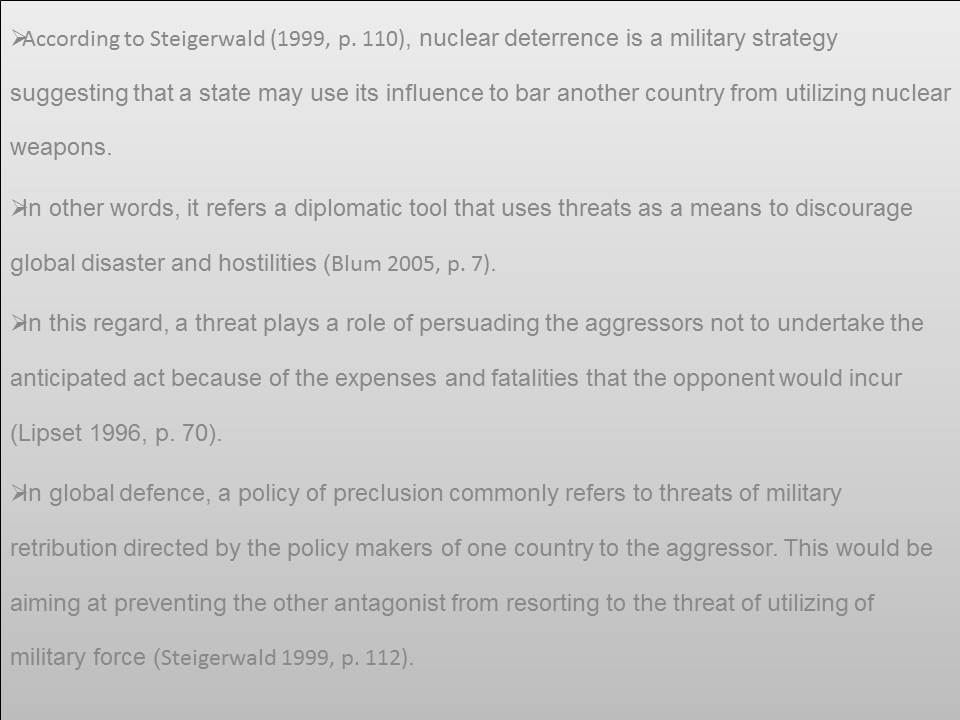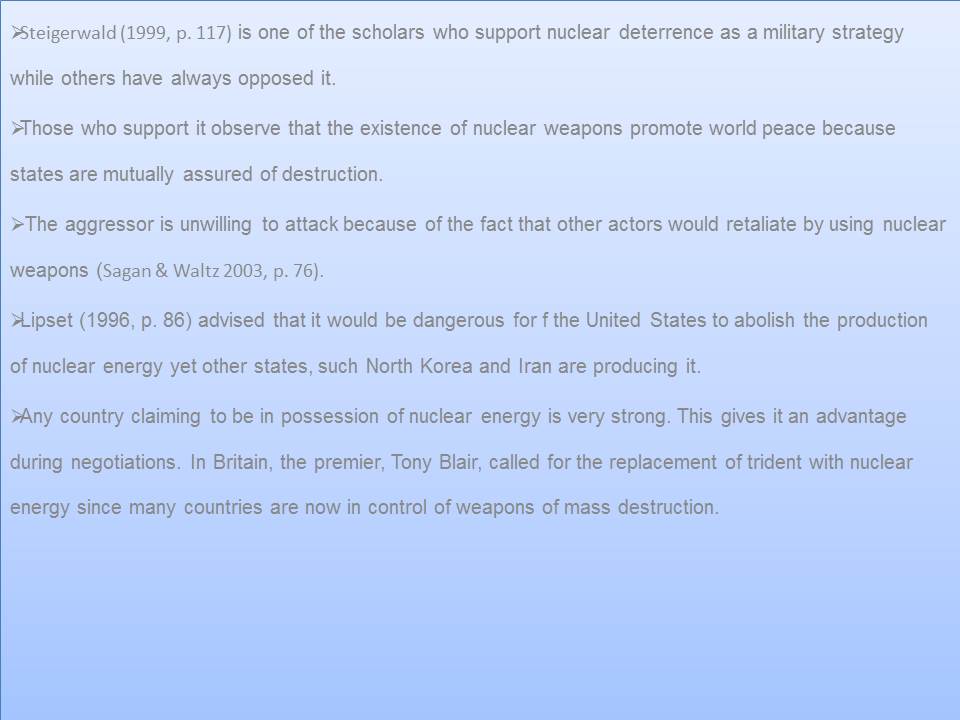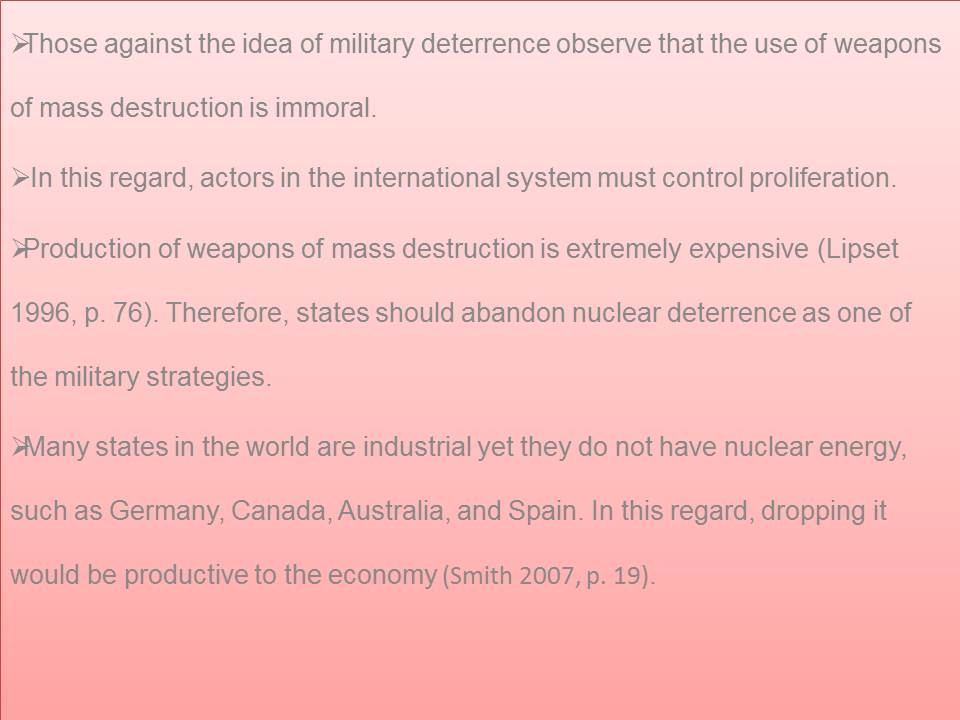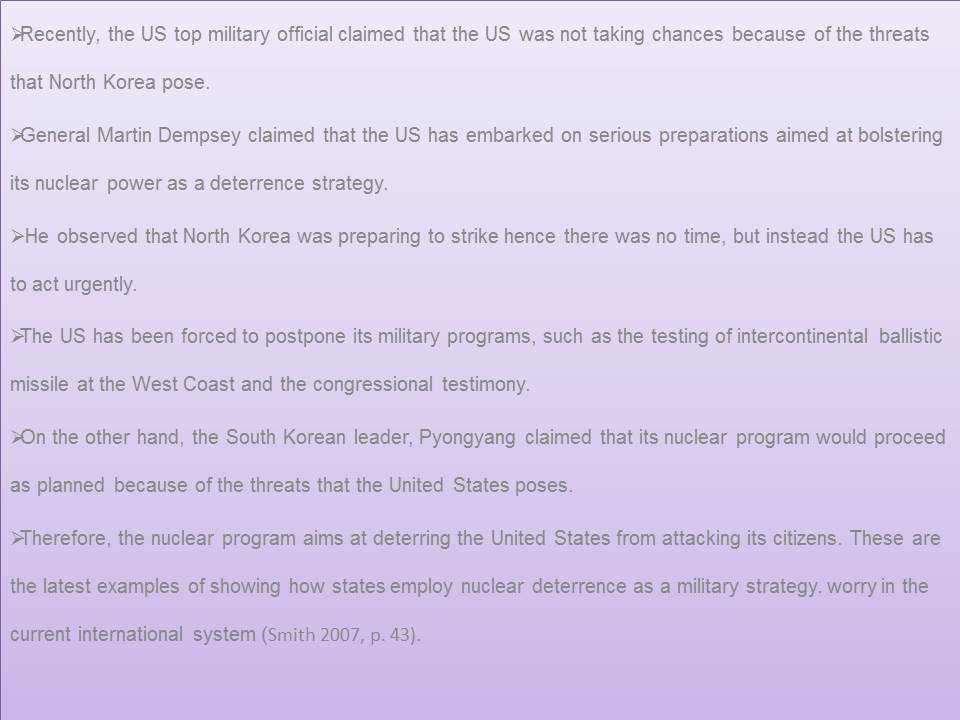According to Steigerwald (1999, p. 110), nuclear deterrence is a military strategy suggesting that a state may use its influence to bar another country from utilizing nuclear weapons.
In other words, it refers a diplomatic tool that uses threats as a means to discourage global disaster and hostilities (Blum 2005, p. 7).
In this regard, a threat plays a role of persuading the aggressors not to undertake the anticipated act because of the expenses and fatalities that the opponent would incur (Lipset 1996, p. 70).
In global defence, a policy of preclusion commonly refers to threats of military retribution directed by the policy makers of one country to the aggressor. This would be aiming at preventing the other antagonist from resorting to the threat of utilizing of military force (Steigerwald 1999, p. 112).
Steigerwald (1999, p. 117) is one of the scholars who support nuclear deterrence as a military strategy while others have always opposed it.
Those who support it observe that the existence of nuclear weapons promote world peace because states are mutually assured of destruction.
The aggressor is unwilling to attack because of the fact that other actors would retaliate by using nuclear weapons (Sagan & Waltz 2003, p. 76).
Lipset (1996, p. 86) advised that it would be dangerous for f the United States to abolish the production of nuclear energy yet other states, such North Korea and Iran are producing it.
Any country claiming to be in possession of nuclear energy is very strong. This gives it an advantage during negotiations. In Britain, the premier, Tony Blair, called for the replacement of trident with nuclear energy since many countries are now in control of weapons of mass destruction.
Those against the idea of military deterrence observe that the use of weapons of mass destruction is immoral.
In this regard, actors in the international system must control proliferation.
Production of weapons of mass destruction is extremely expensive (Lipset 1996, p. 76). Therefore, states should abandon nuclear deterrence as one of the military strategies.
Many states in the world are industrial yet they do not have nuclear energy, such as Germany, Canada, Australia, and Spain. In this regard, dropping it would be productive to the economy (Smith 2007, p. 19).
Recently, the US top military official claimed that the US was not taking chances because of the threats that North Korea pose.
General Martin Dempsey claimed that the US has embarked on serious preparations aimed at bolstering its nuclear power as a deterrence strategy.
He observed that North Korea was preparing to strike hence there was no time, but instead the US has to act urgently.
The US has been forced to postpone its military programs, such as the testing of intercontinental ballistic missile at the West Coast and the congressional testimony.
On the other hand, the South Korean leader, Pyongyang claimed that its nuclear program would proceed as planned because of the threats that the United States poses.
Therefore, the nuclear program aims at deterring the United States from attacking its citizens. These are the latest examples of showing how states employ nuclear deterrence as a military strategy. worry in the current international system (Smith 2007, p. 43).




List of References
Blum, A 2005, “Non-state Actors, Terrorism, and Weapons of Mass Destruction,” International Studies Review, Vol. 7, no. 1, pp 133-170.
Lipset, S 1996, American Exceptionalism: A Double-Edged Sword, Norton, New York.
Sagan, S & Waltz, K 2003, The Spread of Nuclear Weapons, Norton, New York.
Smith, T 2007, A Pact with the Devil: Washington’s Bid for World Supremacy & the Betrayal of the American Promise, Routledge, New York.
Steigerwald, D 1999, “The Reclamation of Woodrow Wilson,” Diplomatic History, Vol. 23, no. 1, pp 79-99.